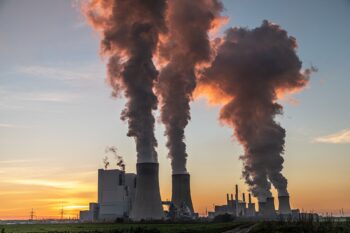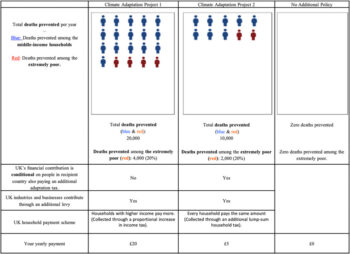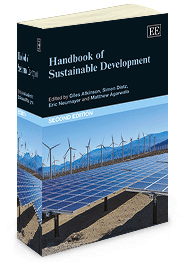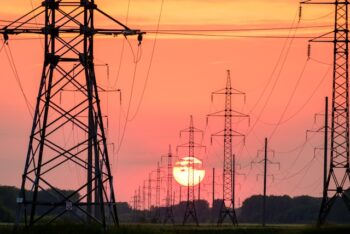Giles Atkinson

Professor Giles Atkinson joined the Grantham Research Institute on Climate Change and the Environment, as its Acting Director, in September 2024. He had previously been an Associate of the Institute since its inception, and joined LSE’s Department of Geography & Environment in January 1999.theme
Giles is also a theme lead for the Protecting and Enhancing Nature and Biodiversity theme at the Global School of Sustainability at LSE.
Background
Giles is an environmental economist with over thirty-two years’ professional experience in academia. His specialist expertise focuses on two broad areas: sustainability economics and economic appraisal of environmental policies. In the former, his work has focused in particular on the theory and practice of metrics of sustainable development, especially those based on wealth accounting and natural capital accounting. In the latter, this research has focused recently on the economic impacts of chemical use and, in particular, the economic evidence based that is needed for regulating chemicals in policy regimes such as UK/ EU REACH.
Giles has been a member of a wide-range of environmental policy advisory bodies over his career. This has included membership of the: UK Natural Capital Committee; Policy and Technical Experts Committee for the World Bank’s WAVES Partnership (Wealth Accounting for the Valuation of Ecosystem Services); and the Advisory Board of UNEP’s TEEB Review (The Economics of Ecosystems and Biodiversity). He is currently a member of the expert body that is tasked with evaluating UK restrictions and authorisations of chemical use under UK REACH (Registration, Evaluation, Authorisation and Restriction of Chemicals)
Research interests
- Wealth accounting, Natural capital accounting
- Nature and sustainability
- Distributional issues and environmental policy
- Economic aspects of regulating chemicals
Research
Research - 2025
This study incorporates the social cost of carbon into mainstream approaches to valuing fossil fuel stocks. Read more

The authors of the study highlight the importance of understanding how natural capital is distributed across rightsholders — a key question for development policy and the design of natural capital finance in forested regions. Read more

Research - 2022
Using a representative sample of the UK population, the authors of this paper use a discrete choice experiment to explore the way in which distributional considerations drive respondent decisions in two dimensions: (a) among recipients of adaptation finance in recipient developing countries, and (b) among those who contribute to this finance (via taxation). Read more

Research - 2020
This paper examines the significance of the ownership of natural capital in the context of natural capital accounting, illustrated with regard to two ecosystem services – carbon sequestration and air pollution removal – and a range of ecosystem types and land ownership in Scotland. Read more

The fact that a carbon tax is an environmentally and economically efficient instrument for reducing emissions is often highlighted, but the equity story is also of importance. This paper addresses the question of the distributional burden of a carbon tax across different income groups and the role played by income inequality. Read more

Research - 2019
The unprecedented advances in economic development witnessed over the past decades cannot continue if economic progress comes at the expense... Read more

Research - 2016
Evidence that the UK may possess sizable resources of shale gas and oil has instigated a debate about whether a sovereign wealth fund would be an effective way to use tax revenues from their exploitation. Analysis in this paper explores the implications the sovereign wealth fund model for managing past and future UK oil and gas resources. Read more

Research - 2015
Paper considers the practical trade-offs policy makers and practitioners must navigate when utilizing the concept of well-being in environmental interventions. Read more

Focusing on the most impoverished populations, we critically review and synthesise key themes from dominant frameworks for assessing the relationship... Read more

Research - 2014
This Handbook takes stock of progress made in our understanding of what sustainable development actually is and how it can be measured and achieved. Read more

Governments and businesses are beginning to account for natural capital, but must collaborate to promote sustainability, combat climate change and improve decision-making. Read more

Research - 2013
Working Paper 117 Abstract Questions about the ultimate size of mineral and energy resource endowments, and the degree of fiscal... Read more

Research - 2011
Abstract The fact that developing countries do not have carbon emission caps under the Kyoto Protocol has led to the... Read more

Research - 2010
Abstract The design of environmental policy raises several equity issues, in particular the distribution of benefits and costs. At the... Read more

Research - 2009
Abstract Arguments about the appropriate discount rate often start by assuming a Utilitarian social welfare function with isoelastic utility, in... Read more

Research - 2008
Abstract Environmental cost-benefit analysis, or CBA, refers to the economic appraisal of policies and projects that have the deliberate aim... Read more

Books
Books - 2019
The unprecedented advances in economic development witnessed over the past decades cannot continue if economic progress comes at the expense... Read more

Books - 2014
This Handbook takes stock of progress made in our understanding of what sustainable development actually is and how it can be measured and achieved. Read more

Events
Events - 2019
Events - 2015
News
News - 2025
Why a more comprehensive approach than the LCOE is needed to design a reliable, affordable and low-carbon energy future. Read more

News - 2012
Giles Atkinson has become a member of the Committee at the Department for Environment, Food and Rural Affairs. The Natural Capital... Read more
News - 2011
Staff, students and members of the Grantham Research Institute on Climate Change and the Environment have contributed to this report, which provides an analysis of the UK's natural environment in terms of the benefits it provides to society and continuing economic prosperity. Read more

